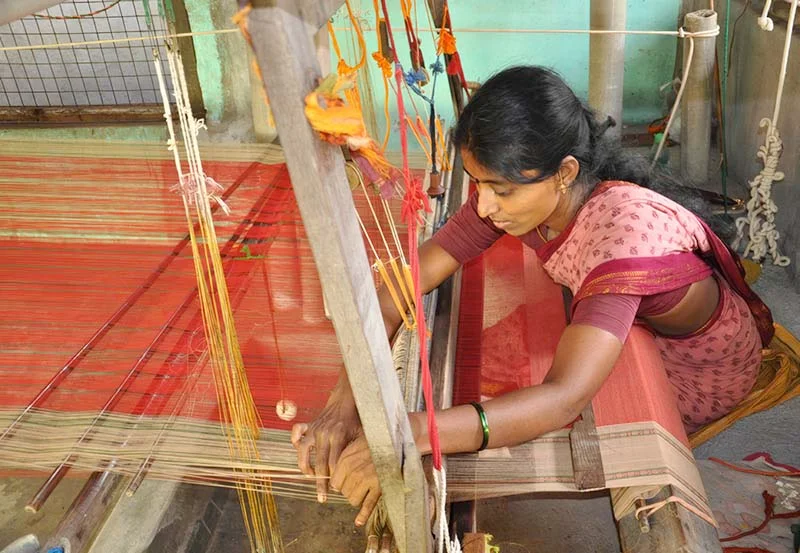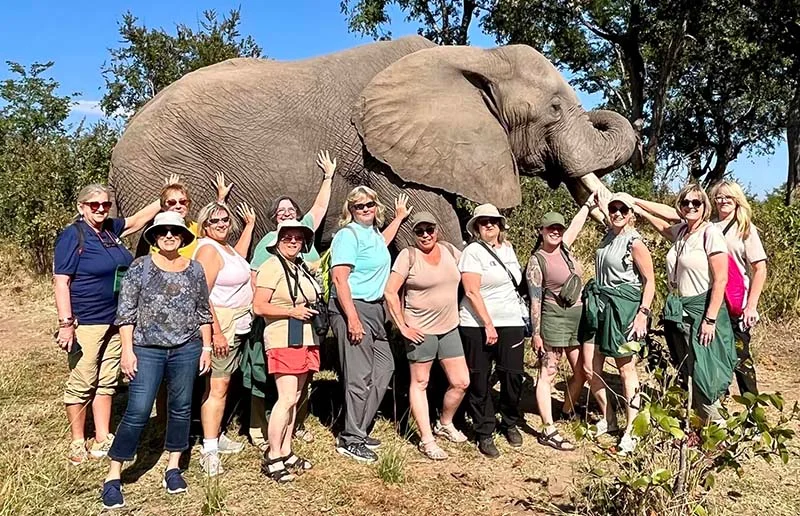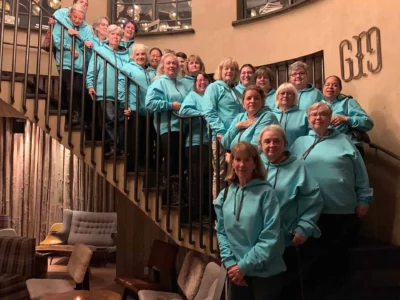Weather Notice: Our team may experience temporary service disruptions due to winter weather, which could delay responses. We appreciate your understanding.
Weather Notice: Our team may experience temporary service disruptions due to winter weather, which could delay responses. We appreciate your understanding.

In this next series of blog posts, we will dive into how to be a better cultural traveler. As women over 45 traveling the world, we need to realize we are guests in each country we visit. With that comes the responsibility to learn about local etiquette and customs.
Many years ago, when I visited Paris for the first time on a tour, we were in Versailles where there was a local market taking place. Our tour had some free time to explore before moving on to the castle. I was with a group of fellow travelers when we came upon a shoe vendor. We all stopped because well…shoes so why wouldn’t you. One of my fellow travelers was looking at a pair and, since they were European sized, wasn’t sure which size to try on. She asked the young vendor the size in American and he did not know the answer to what she was asking. She kept pressing him and he got upset. She walked away muttering how rude he was, while he, in irritated rapid fire French, was expressing his frustration to his fellow young booth mates.
I, after greeting him with a “bonjour,” spotted a pair of adorable leather sandals for 24 euros. Based on the size of the display shoe, I searched for a pair that I thought might be close to my size from the boxes under the sample. I motioned to the vendor, wanting to try them on. He nodded, giving me permission. After slipping on a couple pair I found the perfect size. Purchasing the pair from the vendor. I said a polite “merci,” and walked away happy with my find.
These two scenarios ended much differently, didn’t they?
Before I went on this trip, I made a point of reading all I could about cultural norms in France to educate myself on how to be a responsible traveler. I felt it was important to learn about the local culture of the country I was about to visit for a more immersive experience. I wanted to find out the best ways to interact as a culture traveler with the French, what they dislike about tourists, and how not to be that “ugly American.” I learned that adapting even minimal practices build a deeper connection with different cultures.
My fellow traveler could have easily came back to the US and told everyone who asked her how rude the French are, solidifying the number one stereotype of the French. It was essentially this person’s doing that prompted the reaction from the vendor, which in his mind confirmed the “ugly American” stereotype.
All of us “Sisterhood” travelers would do good by doing a bit of research before we go to a foreign county. Regardless of going with an organized tour and having a mapped out itinerary, the traveler must still take on the responsibility of educating themselves on cultural norms and how to be a responsible traveler before reaching their destination.
This cultural travel blog series will cover some of the general tips to follow local customs that pertain to traveling to a different foreign country. I will break it down to specific subjects such as following a dress code, how to navigate language barriers, photography etiquette, and other basic local traditions of new cultures.
In this introductory post, I’m going to point you toward pre trip education and why it’s so important to educate yourself on local customs.

Being responsible cultural travelers is crucial for both the traveler and the local community you are visiting.
For travelers, engaging respectfully with local customs and etiquette enhances your travel experience, offering deeper understanding of the country, more authentic experiences and connections. The personal benefits are to go home knowing that cultural stereotypes are not always true. It also improves personal safety and comfort by preventing misunderstandings and conflicts arising from cultural differences. Experiencing unique cultures responsibly encourages personal growth, challenging travelers to become more empathetic and globally aware.
For local communities, responsible travel helps with the preservation of local customs, particularly in areas where tourism significantly affects the local businesses. Like us Americans, people in other tourist destinations take fierce pride (rightly so) in their language and customs. Cultural sensitivity among travelers can aid in environmental protection, which is often crucial to local livelihoods and cultural identity.
Fostering an atmosphere of mutual respect and understanding not only enhances the reputation of tourists but also reduces cultural conflicts, setting a positive precedent for future interactions.
Overall, responsible travel fosters a reciprocal relationship that enriches both travelers’ experiences and the lives of local people, ensuring that travel fosters a deep connection in our interconnected world.
Preparing for a trip involves a variety of resources to ensure a respectful and enriching experience. Start with trusted travel guides such as Lonely Planet, Frommer’s, or Fodor’s, which provide comprehensive overviews of destinations, including cultural etiquette and essential language tips. I am a Rick Steves fan, so I always buy one of his guides months before I travel to the destination. Not only does this help with cultural norms, but just general travel information as well.
Official tourism websites of the destination country offer targeted information, advisories, and insights into local norms, while government websites provide safety and health updates.

If you are traveling on a Sisterhood Travels cultural tours trip, ask for tips on the private Facebook group. There are many well seasoned and educated travelers there that can offer insight.
Local blogs and social media are invaluable for current, on-the-ground advice and can offer a glimpse into different ways of life, the culture of a destination and lesser-known tips that mainstream guides might miss.
Engaging in travel forums like TripAdvisor or Fodor’s Travel Forum allows for specific questions to be addressed by recent travelers or locals themselves.
For a deeper understanding, watching documentaries and reading books about the destination’s culture and local history can provide a context that enriches your visit.
Finally, and perhaps one of the most important is learning basic phrases through apps like Duolingo, Google Translate (which is wise to use during your visit), or resources like YouTube show respect and aids communication. This does not mean you need to be fluent, just a few polite words of greeting, thanks, and other phrases go a long way to bridging a cultural gap.
Remember that traveling is a privilege that comes with responsibility. Embracing each journey with kindness, positivity, and openness allows us to learn from every culture and new appreciation for every community we visit. As women over 45, we carry with us a lifetime of experiences and wisdom, and by being a responsible cultural traveler, we set an inspiring example for generations to come.

Lori Helke is an author and travel writer from Wisconsin. She is the founder of the travel and lifestyle blog Lori Loves Adventure where she writes about her solo travel experiences, and is the author of the Beatrice the Little Camper children’s picture book series, as well as the travel guide ‘Wisconsin Harbor Towns: The Ultimate Wisconsin Road Trip Guide.’ Lori has a monthly travel segment on Local 5 Live, a Green Bay, Wisconsin TV morning show, has contributed to several online and print publications, and serves on the Visit Sheboygan Board Of Directors.


Who are our Sisters? Well, we’re you! We value old friendships but love making new ones. We’re intellectually curious and love a unique adventure to parts unknown. We may be single, divorced, widowed, or simply have a partner who doesn’t want to travel. Most of all, We’re kind, compassionate women who look forward to cultural immersion, exclusive adventures, lots of laughs, and the magic of Sisterhood.





